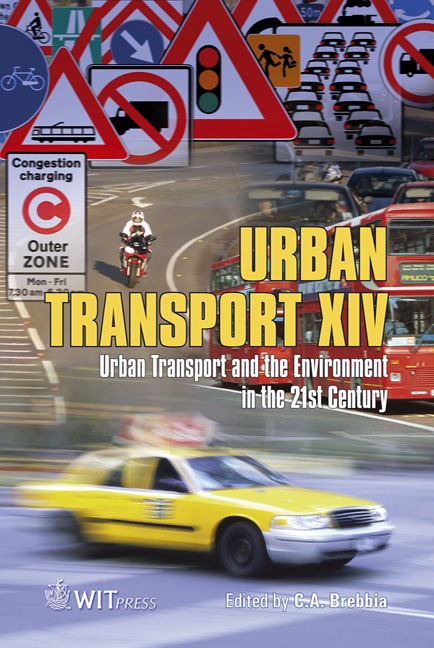Long-term Effect Of Eco-driving Education On Fuel Consumption Using An On-board Logging Device
Price
Free (open access)
Transaction
Volume
101
Pages
9
Page Range
395 - 403
Published
2008
Size
424 kb
Paper DOI
10.2495/UT080391
Copyright
WIT Press
Author(s)
B. Beusen & T. Denys
Abstract
This paper describes the measured long-term effects on fuel consumption of ecodriving education. The results are part of the long-term survey within the Flemish research program \“An activity-based approach for surveying and modelling travel behaviour”. During several months, the travel and driving behaviour of 28 respondents was monitored. The methodology consists of using an on-board vehicle device and a web-application. The on-board device is equipped with a GPRS-modem, a WiFi connection, a GPS system and a CANinterface. The GPS system allows the monitoring of travel behaviour. Driving behaviour is studied by logging various CAN-parameters (e.g. revs per minute, chosen gear etc). Data is transmitted to a central server through the GPRSnetwork. Alternatively, data can be transmitted using a WiFi connection when present. Respondents can access the data on a web-application and provide additional information. The gathered information is used on the one hand to develop a regional activity-based travel model (not discussed in this paper). On the other hand, the data is used to assess the long-term effect of an eco-driving course by analyzing the change in driving behaviour and monitoring fuel consumption, and using these inputs to simulate the emissions before and after such training. The data might also be used as feedback to the driver, to visualize his driving behaviour, and to help him understand what he can do to further improve his driving style. This paper discusses the long-term effect of an ecodriving course on fuel economy and driving style for eight participants. Keywords: on-board logging device, eco-driving, fuel consumption, driving behaviour, driving style, CAN.
Keywords
on-board logging device, eco-driving, fuel consumption, drivingbehaviour, driving style, CAN.





